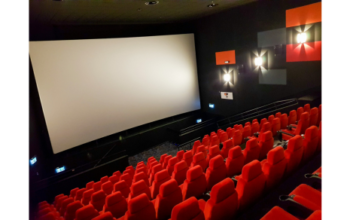What is a film editor? Assembling raw footage into a cohesive and polished product, the task of a film editor involves working directly with raw footage, sound, and special effects to bring forward the narrative of the movie to be watched for the emotional quotient.
What skills are required to become a film editor? Film editors need strong technical skills in editing software, such as Adobe Premiere Pro, Final Cut Pro, or Avid Media Composer, a good eye for detail, creativity, an understanding of storytelling, and an ability to work under pressure.
Does it need to be formal education in film and media studies, or can you do it after having an education? Actually, no, as formal education helps; most editors gain their experience through an internship, an apprenticeship, or by simply putting together an impressive portfolio. Even self-taught editors can be great, depending on their skills and experience.
The primary software tools used in film editing are Adobe Premiere Pro, Avid Media Composer, Final Cut Pro, DaVinci Resolve, and Lightworks. Other specialized softwares may include software used for sound editing, color correction, and visual effects.
What does a film editor’s workday look like? Generally, it consists of reviewing footage and organizing it, making creative decisions about the pacing and transitions of the footage, working with directors and producers, and video and audio editing to ensure consistency and quality.
How do I get started in film editing? To get started, practice using editing software, take online tutorials or classes, work on personal projects or student films, and seek internships or entry-level jobs to gain practical experience.
Common careers for film editors include feature films, TV shows, documentaries, music videos, commercials, video games, corporate videos, or even social media content creation. In some cases, editors may focus on specific genres or types of editing, such as sound or visual effects.
How important is collaboration in film editing? Collaboration is very important in film editing. Editors often collaborate with directors, producers, sound designers, and other departments to ensure that the final product meets the creative vision and technical standards.
The main difference is that a DP handles the actual look and aesthetic of the movie in terms of lighting, shot angles, and framing. In contrast, the editor works through raw footage in terms of manipulating the narrative of the film in its overall timing and pace.
How long does it take to edit a film? It depends on the length, complexity, and budget of the film. A short film may take a few weeks, while a feature film could take several months. The editing process may also be divided into several stages, including rough cuts, fine cuts, and final touches.
Do film editors need storytelling knowledge? It is true: understanding storytelling helps a film editor. They would need to make the audience feel any emotion, construct tension, or pace the flow of the script so that every moment of it is engaging and interesting.
Can I specialize in certain types of edits, such as sound or visual effects? Yeah, editors might specialize in many areas, like audio editing, visual effects (VFX), or color grading and even in movie genres, be it action, documentary, and so on.
Film editing is definitely a great career opportunity for those people who have some passion for the story, for technology, and for creativity in general. Sometimes it is so competitive that without perseverance, talent, and effective networking, this is not worth your time at all.
How much do film editors make? Salaries range from $40,000-$60,000 per year, depending on the experience, place, and film industry. Experiences editors work on high budget productions and could earn $100,000 per year or higher.
What challenges do film editors face? Such challenges include spending long hours in tight deadlines to manage multiple revisions, handling enormous footage, and collaborating with diverse departments with divergent priorities.
What are some tips for building a strong portfolio as a film editor? Build a portfolio by working on personal projects, student films, freelance gigs, or collaborations with filmmakers. Focus on showcasing a variety of work that demonstrates your range and creativity.
Is it possible to work as a film editor remotely? Actually, yes. During these digital times, many film editors work remotely. Many editors can work from home or hire clients living far off into the world using cloud-based software and file-sharing platforms.
Where would a freelance film editor find work? Freelance editors can secure jobs through networking, online freelance sites such as Upwork or Fiverr, and direct contact with production companies, independent filmmakers, and studios. It is about reputation and the network built, so that constant work is easily secured.
An assistant editor is someone who assists the lead editor with such tasks as arranging footage, preparing files, metadata management, syncing audio, and doing other technical jobs in the process of editing. This role usually serves as a stepping stone for becoming a lead editor.
Career advancement possibilities for a film editor include higher positions such as senior editor, the ability to take on larger projects, or high-profile directors’ and studios’ editors. Experienced editors may be able to step into the director’s, producer’s, or editor-in-chief’s position for a company or production house.




